
 Reading, Short And Deep #100
Reading, Short And Deep #100
Eric S. Rabkin and Jesse Willis discuss The Ghosts by Lord Dunsany
The Ghosts was first published in 1908
Here’s a link to a PDF of the story.
Posted by Scott D. Danielson

 Reading, Short And Deep #100
Reading, Short And Deep #100
Eric S. Rabkin and Jesse Willis discuss The Ghosts by Lord Dunsany
The Ghosts was first published in 1908
Here’s a link to a PDF of the story.
Posted by Scott D. Danielson

 The SFFaudio Podcast #452 – Jesse, Scott, and Paul Weimer talk about The City And The Stars by Arthur C. Clarke
The SFFaudio Podcast #452 – Jesse, Scott, and Paul Weimer talk about The City And The Stars by Arthur C. Clarke
Talked about on today’s show:
We three met, “a reaction” to The Broken Sword by Poul Anderson, I wonder what these guys will think Jesse will think of this book?, idea filled, big ideas, explorations of societies, tons of imagination, successfully modeled my brain, idea after idea after idea, a neutered human, this weird society, the jester, how art works, fear blocked, cut off from the whole universe, reminiscent of Olaf Stapledon, this is Clarke’s Last And First Men, a rewrite of Against The Fall Of Night, Gregory Benford’s sequel, a rethinking of the original book, different Bach fugues, from a writing perspective, more to contribute, the British Interplanetary Society’s webpage, 2013, 1930s, the opening scene, 1935, six versions, Gnome Press, 1953, 1956, the Wikipedia entry, to showcase what he had learned about writing and information processing, in the individual scenes, Diaspar and Lys, the anecdote, different enough, the robot with the mental block is solved in two different ways, to FMRI the robot, robot psychology, so much in this book, Hal 9000, 2001: A Space Odyssey, The Sentinel, what drove his whole career, Paul is quiet, the Mad Mind of this novel, a battle at the end of eternity, more about computers and artificial intelligence, game theory, they’re not really human at all, they never have a childhood body, they’re never actually human, bio-manufactured like the robots in Westworld, emotionally muted, a whole book for someone else, the lack of love in Diaspar, factoids, John W. Campbell, telepathy, Startling Stories, the fact that everybody is telepathic, Jesse can become telepathic, the only kind of telepathy that makes any sense, modelling, the telepathy doesn’t pay-off, a balance between the world of Diaspar and the world of Lys, civilization vs barbarism, an equal but different, the whole problem of a lack of conflict, an Olaf Stapledonism, an excellent point, biological vs. technological, Apollonian vs. Dionysian, Zardoz is Sean Connery in a diaper, a brute barbarian, weird WTF moments, reborn over and over again, continuity of millennia, the futility of immortality, editing of memories, an inversion of Logan’s Run, a central computer, a society of youth vs. a gerontocracy, perturbing the system, let’s posit a future in which a global catastrophe has happened, a forbidden zone outside, a robot that goes crazy, the back half of Logan’s Run, This Perfect Day by Ira Levin, The Giver by Lois Lowry, how Alvin has tucked away genitals, hairless except for his head, drugs, a flat affect, “Wei, Wood, Marx, and Christ”, Brave New World, “Our Ford”, a factory societies, a dystopia utopia, the RPG elements, Dream Park, “he breaks the railroad”, railroading in RPG terms, the sagas, how this novel works, his adventure outside the city (to the stars), Cthulhu or something?, Lovecraftian elements, “we have lived too long out of contact with reality”, the world shaker, seduced by Lys, a very soft horror, the hermit kingdoms of Korea and China, the treasure ships, forcing trade upon you, an outside force, he’s pre-programmed, he’s the only who isn’t pre-programmed!, even the jesters, a foreshadowing, “Repent, Harlequin!” Said the Ticktockman, from the robots point of view, their whole undercity, places to dust, do they have their own system?, sitting in the background while Alvin is exploring the depths of the city, how the humans are, intelligence machines looking at art, in other hands (not Clarke’s), how art is chosen, what those pieces of art look like, art without conflict, still life for everyone, no machine may contain any moving parts, Steve Jobs, an oval egg you keep in a drawer and don’t look at, Universe by Robert A. Heinlein, optical fiber, control systems, no repairmen necessary, look at this mural, now the robots have something to do, the bones of old Rome, they don’t know what the word “tomb” means, the Great Ones, the Old Ones, the great race of Yith, a fake out, how the city was constructed, experiences the city of Disapar from a billion years in the past, this is all a dream, I take away the blocks that you have, you are free now, parallels, the difference between the humans and the robots, less hairy, metal?, “Rivets and Trees”, Marissa, HBO’s Westworld, nefarious vs. right and proper, thoughtful and philosophical, humans and robots, Blade Runner, at least one of the characters is an older robot, nuts and bolts inside, three kinds of robots, Diaspar is Westworld’s future by a billion years, guests and staff, now you are Mickey Mouse, the names, diaspora and lis, identity politics of 2017, you can’t use the word tribe, a white male protagonist, is he white?, is he male?, is he human?, a long flowing yellow mane or a curly tight man bun, being human or not, going full Olaf Stapledon, the future history has no bearing on 2017’s obsessions and attitudes, the Long Now Foundation, long term consequences, technological vs. biological, everybody is concerned about that, a Wiki of Ice and Fire, Lys (off the coast of Essos), George R.R. Martin, Dis (a layer of Hell), the heaven where everybody is the same, the city of Dys where everybody is the same, leaving both, the 1980s Alvin the robot submersible, looking for hidden things, playing the sagas, Skyrim, the final scene, in polar orbit, the night was falling, Scott’s entire reading life, sensawunda, seven strange stars arranged in a line, back to Earth, an ever expanding circle of exploration and wonder, among the stars, no eye-rolling, a hero’s journey, circular, an old Locus issue celebrating Robert A. Heinlein, one of the pictures of Heinlein visiting Arthur C. Clarke in Sri Lanka, The Night Flier, a Cessna Skymaster, an incredibly weird guy, Lord Dunsany, he leaves the world, literally on the other side of the world, remarkable, a global influence, an internet like life before that was possible, how amazing his computer is in this, an intelligence machine, a non-distributed and smarter Siri, government by AI, doing stuff with computers that nobody is doing (even Isaac Asimov), what they do rather than how they do it, totally timeless, we’ve gone past atomics, infinity plus one, he knows what computers are about, process information, storage, we are robot computers with biological casings, circuits and synapses, is there anything in this story that feels dated?, holographic projection, unsqueaky chair, amazing!, urtexts, cleanly and generically, the trappings are timeless, their genitals don’t work, sex, kind of interesting, the fish in the sea, a radar operator during WWII, bouncing radar off the Moon, what this technology can do, why are we worrying about breaking these Nazi codes?, a plot, so good, full of ideas, The Collected Stories Of Arthur C. Clarke, a lot of Clarke is public domain, The Nine Billion Names Of God, The Star, everyone should read more of Arthur C. Clarke, 4001: A Continuing Of The Odyssey The Should Probably Have Been Left In The Drawer, Rama, Paul has issues with Gregory Benford, stick to the originals, the Black Sun, E.E. Doc Smith, black holes, until Hawking thought about how black holes could evaporate, a really good book, the audiobook, other versions, the one on Audible has music under the narration, the book for the blind version, Northstar Publishing, audiobook rental stores (like Blockbuster), truckers were the original hyper-consumers of audiobooks, women were supposed to have been the ones to make the household magazine purchasing decisions, mainstream, commuters (and everybody) not the women of the house, when Amazing Stories broke into the market, Railroad Romances, Westerns, women wanted to read about science fiction, I’m not a trucker, the BBC audio drama of The Hitchhiker’s Guide To The Galaxy, abridged audiobooks, blind people aren’t the only ones who need audiobooks, if you didn’t see them on the shelf, totally out of print, nobody can get this one, a deep cassette hum, Paul’s trip to Yellowstone in 2005 (got him into audiobooks), a great idea, 2003, Audible’s 20th anniversary, before iPods, overseeing the explosion of audiobooks, nothing that isn’t unabridged, audiobooks are mainstream, are more people listening to books than are reading books now, where did you get that time?, double density book-cassettes from Brilliance audio (each channel having one track), apparently cassettes were expensive, CDs are still around, 40 CD audiobooks, Blackstone Audio rentals, Downpour has rentals, Books On Tapes, Audible by mail (Netflix for audio), Recorded Books, a slight competitive advantage, Bryan Alexander.
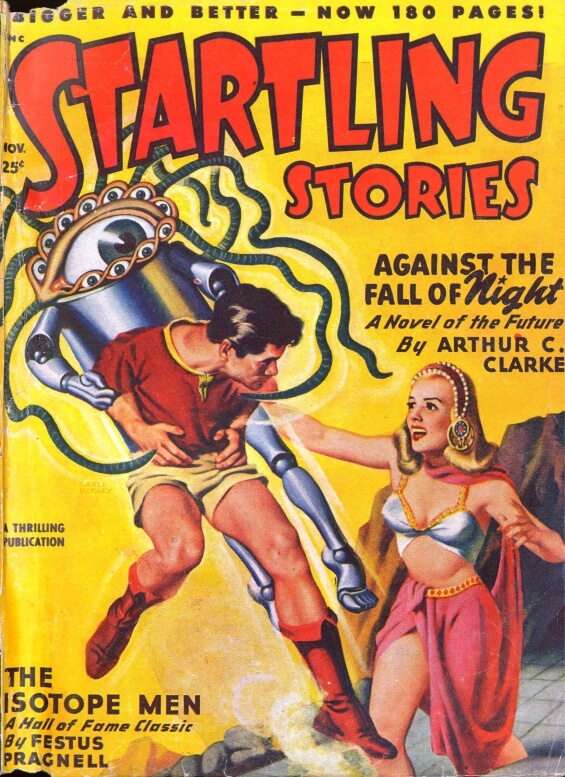
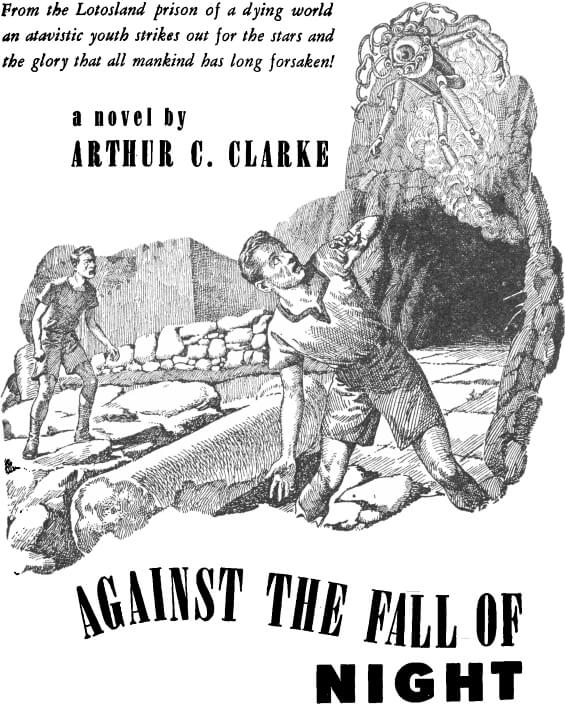
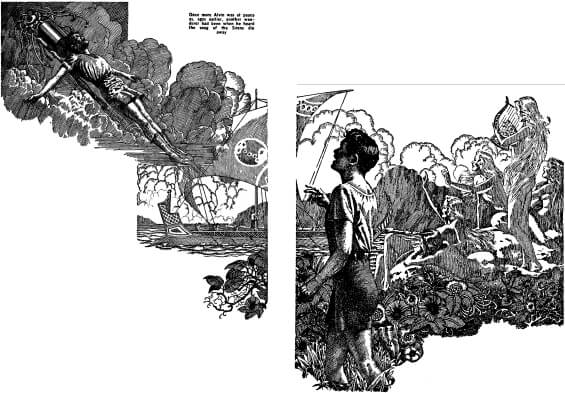
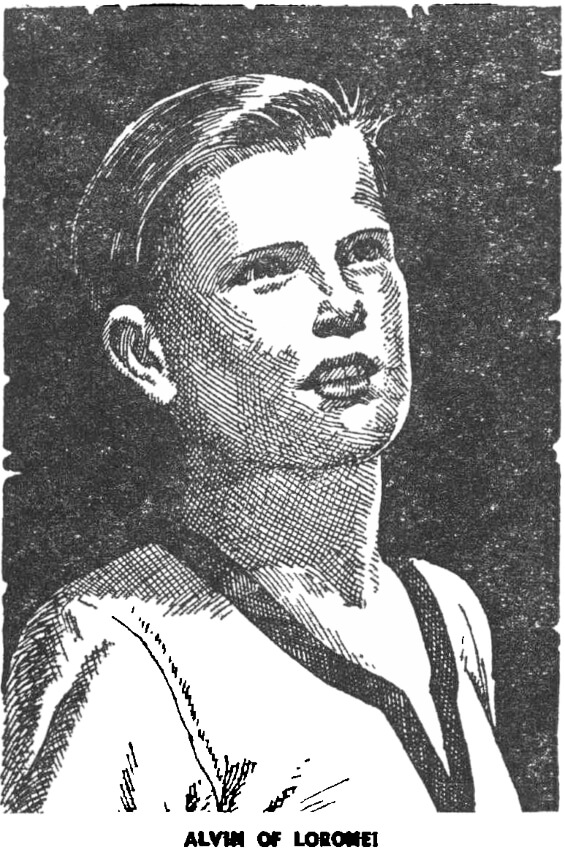
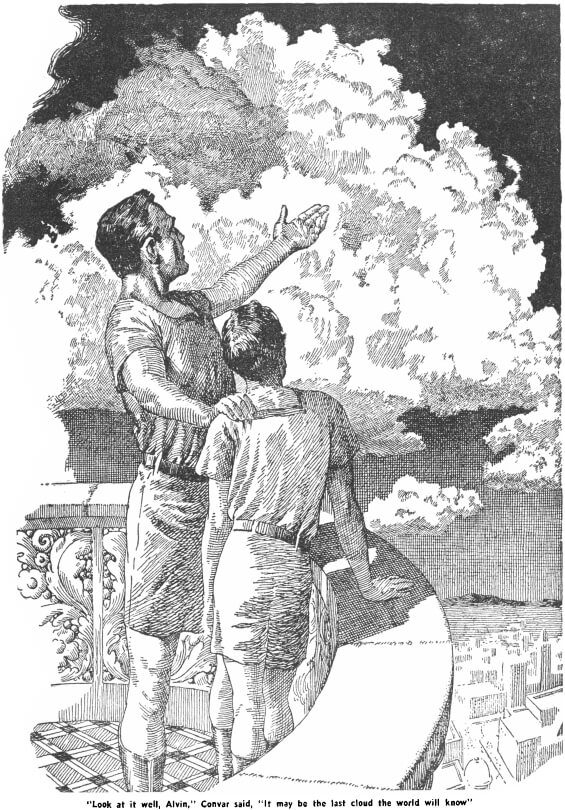
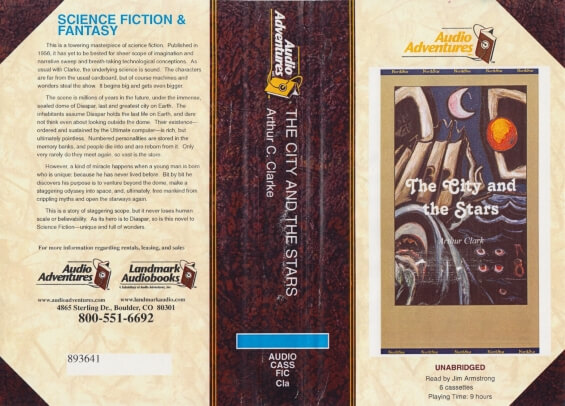
Posted by Jesse Willis

 Reading, Short And Deep #092
Reading, Short And Deep #092
Eric S. Rabkin and Jesse Willis discuss The Horde Of The Gibbelins by Lord Dunsany
The Horde Of The Gibbelins was published in The Sketch, January 25, 1911.
Here’s a link to a PDF of the story.
Posted by Scott D. Danielson

 The SFFaudio Podcast #441 – Jesse, Julie Davis, and Maissa Bessada discuss The Uninvited by Dorothy Macardle
The SFFaudio Podcast #441 – Jesse, Julie Davis, and Maissa Bessada discuss The Uninvited by Dorothy Macardle
Talked about on today’s show:
1941, 1942, Uneasy Freehold, who is The Uninvited?, the ghosts?, Carmel?, multiple possibilities, the Fitzgeralds, Irish freedom fighting, Macardle herself, Macardle’s writing, not as well written as it seems to be, the timing was incredibly good, other criticism, the movie vs. the book, the playwriting sub-plot, the haunting aspect, review writing, completely inspired, it’s not a horror film, it’s a comedy and a romance, gentle touches, wordplays, Lizzie is amusing, Julie’s mother had this book, subtle influence, creative stresses, artists, dancers, actors, gentle and modern, a tough minded attitude towards ghosts, secular and skeptical, the ghost hunter, seeing a lot of Julie in the book, I’ve been waiting for this, one of the approaches, when is the book set?, the conflict in Spain, the Spanish Civil War, it’s a mystery, a detective story, the cat is named Whiskey, an amazing set of clues, we are allowed to participate in this haunted house story, a reviewer of plays and books and can make a living at it it, AMAZING!, books, Lord Dunsany, it just so happens, The Ghosts by Lord Dunsany, infected by the ghost, H.G. Wells’ The Red Room, kind of ridiculous, the book is very subtle, one of the things Macardle is really good at, living in the house, living in the bodies of the residents, needing to sleep and needing to eat, we’re tied to our bodies, ghosts don’t exist but they point to a real phenomenon, an empty house that has a history feels that it has ghosts, pointing to ghosts and, there’s nothing in the room he didn’t bring in with him, the seance, the first film that doesn’t turn ghosts, in the Gothic tradition, a locked madwoman in the attic, this book has a lot of power, understated, re-readable, various parallels, Mary Meredith, Carmel, Stella, trying to be, she’ll have no peace, do you think the grandfather knows?, the way he talks about her, disobedient, a trickster, he knows and doesn’t know, his father’s daughter, Jane Eyre, the same story with a different flavour, somebody else’ take, Mary is a lesbian, Miss Holloway, we sat around planning our lives together, remote and austere, starring down like a goddess, that’s why the mother is so cold, “a saint”, most evil, insanity, would this whole thing have played out without Miss Holloway’s influence?, would Mary have been as Mary as I was, I hate Mary, a very womany book, Roderick, this is a sequel to… The Fall Of The House Of Usher, Roderick Usher, incest lurking in the background, a female narrating a male narrator who is talking about his sister all the time, throwing the asshole card, a woman’s story, what kind of woman are you going to be?, every father figure in the book, the terrible commodore, a woman’s story, Max and Mitzi, a cat who will claw you, manipulative and horrible, the women are the active people, Pamela, the reason they were leaving London (before the start of the novel), she was worried that he would marry and worried that he wouldn’t, let’s go off an live in a house by the sea together (as brother and sister), the setup, they’re so distant from everyone else, a blasted heath, somewhere in the middle of the Atlantic Ocean, a positive uplifting ending, A Christmas Carol ending, when you grow up in Kansas…, a Spanish gipsy, a liar, lying for no reason, a lot about race, the Spanish Armada and the Black Irish, skin you could read a book through, the Fitzgerald, Irish this, Irish that, random racism, regionalism, Cornwall is not Wales, why Carmel is so despised, gaslit, oh that’s wonderful, very modern, I’ve never met the woman, the Irish Republic, an Irish ghost story set in England, viewing Macardle as Roderick, something’s going on, it’s not written by a man, Walter de la Mare, the H.P. Lovecraft Literary Podcast, oh you genius, Seaton’s Aunt, she’s kind of like a vampire, nebulous, a masterpiece, a connection with India, Roderick’s play, did it reflect what was going on the novel, they don’t do a lot of reading in movies, reading the play aloud, a quasi-strange family (but not in a creepy way), looking at it from the outsider’s point of view, she’s 18 in the book (20 in the movies), how old is Roderick?, Ray Milland, of course she has to go home, that’s not seemly, as the commodore says, an old man trying to control a young girl, very confrontational, schizophrenia is announced, not because she’s a teenager, in 1970s, escaping an asylum, Nellie Bly’s Ten Days In A Mad-House, I see a ghost and want to throw myself off a cliff, an incident or a disturbance, there’s a malignant thing that wants to hurt my granddaughter, lying to himself, I told you something could happen, a ghost or two, Captain Frederick Marryat in The Most Haunted House In England, why does he carry that pistol?, William Hope Hodgson’s Carnacki, The Ghost Finder, is the gun to make us feel slightly less harmless?, smugglers?, sea caves!, the crying lady, the second ghost, misdirection, a ouiji scene (vs a ouiji board), the seance scene, the British version of the film, I smell mimosa!, what about the book?, the flipping book, working for the censorship bureau, how well done the seance was, such pains, not to be faked out, ghost hunter vs. spiritualist, the spelling of the words “lili”, ghosts can’t spell!, well intertwined, presuppositions, ghost hunters in real life, the perfect kind of ghost story, pretty impressive, the religious aspect, exorcism, she wanted to be with her mother, gleaning facts, but what did you know of these people?, she was the worst (in a charitable way), all these different methods, more complex and fallible than they might otherwise be, another condensed novel version, any illustrations?, only one illustration, a house on a cliff with a dead tree in the foreground, a dead twisted tree, a metaphor, the rocks called “The Ghouls”, how much time is spent on the physicality, managing a body, wild Spanish blood, very deftly handled, The Unforseen, Forgotten Classics podcast, feeling for people, a lot of sympathy, a nice warm cozy blanket of a ghost story, “that’s such a marvelous book”, a gipsy family, a gipsy camp, Ivanhoe by Sir Walter Scott, the overall takeaway, he was not a hater, Isaac, the mere mention of race or ethnicity [does not damn a book], a really good book, ten years ago, two other stories, The Beckoning Fair One by Oliver Onions, The Events At Poroth Farm by T.E.D Klein, a book for book-readers, Lovecraft country.
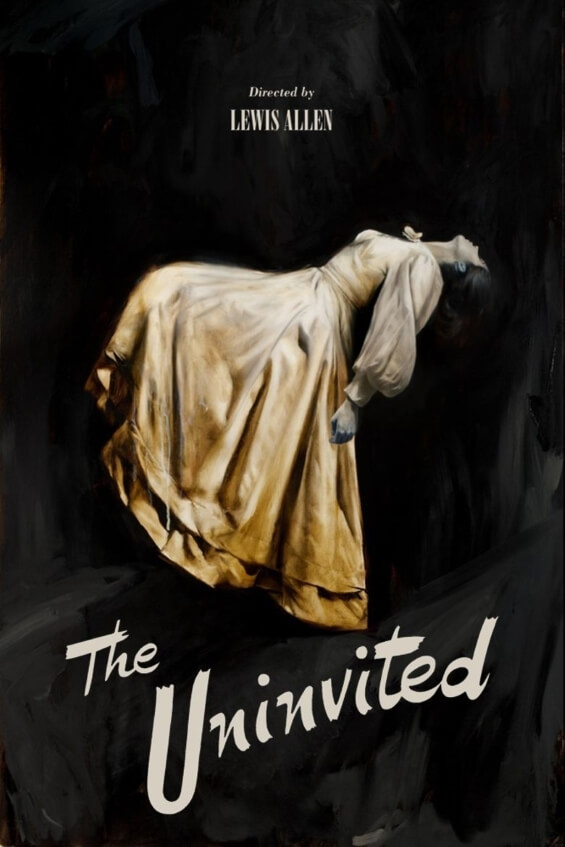
Posted by Jesse Willis

 The SFFaudio Podcast #439 – Jesse, Scott, and Paul Weimer discuss the novella entitled The Fifth Head Of Cerberus by Gene Wolfe
The SFFaudio Podcast #439 – Jesse, Scott, and Paul Weimer discuss the novella entitled The Fifth Head Of Cerberus by Gene Wolfe
Talked about on today’s show:
Serberous?, the novella (not the whole book), maybe an accident maybe on purpose, very-Wolfeian, Orbit 10 edited by Damon Knight, fixup vs. novel?, V.R.T., to fully understand…, you need them all together, error or on purpose, many moons ago, novella is the perfect length for any Science Fiction work, read in publication order, old home week, Ender’s Shadow, Ender’s Game, cheating, the Alzabo Soup podcast, The Book Of The New Sun, condensed and distilled, Jorge Luis Borges <- I like what that guy's doing, I'm going to do me some of that -> George R.R. Martin, reader doing the heavy lifting, A Song Of Ice And Fire, almost a fantasy novel, a cloning story, Jack Vance, far future where science has become magic, the Dying Earth subgenre, no magic going on?, the sentences are full of magic, what does the title mean, is the reader the fifth head?, The Black Gate blog post, this story is a combination lock that allows many different combinations, info-dumping, somebody is a clone or a mirror or a part of his imagination, an unreliable narrator, a really good sign, this is Gene Wolfe’s thing, perfect memory, no memory, a consistent memory, how accurate are the details?, how many characters are there?, number five, is one of the characters is “Gene Wolfe”?, the father, the brother (David), the aunt, the lady in pink, the other clone in the warehouse, the four-armed dude is a character, the robot (Mr Millions), Marsh, the anthropologist, the brothel, how its revealed, he has been in prison, the only complete arc, we must infer the rest of them, the death of the father, Christopher Nolan should direct it, it is a complete work or it will be, clones of the same person, hinkey, hokey, or odd, all the books in the private library were written by his father, going to the Ws, very meta, are you a Nigerian prince? Jesse will believe you (for a minute), he is really old, which body did all the typing and research, daily dissertations, studying particular subjects (to be filled in in the labyrinth), The Library Of Babel, the only thing we know about readers is that they like books, writers are readers too, the ultimate fantasy is the place where all the stories are found, cloning to write, cloning to read, what’s up with the late night interrogations, is he psychoanalyzing?, or studying?, voight-kampff tests, what makes something or someone real?, Infinivox, Robert Reed’s Guest Of Honor, there was no quintessential cloning novel, why she is guest of honour, everybody is immortal, he could be downloading, being able to read three books at the same time, David isn’t one of the clones is he?, he escapes, theory and conjecture, nothing more than personality test?, gaining insight into himself, he’s clearly cloned a lot, “failures”, a slave who looks like him, four arms vs. five heads, societal cloning, impressions, “questionable things”, a brothel, a Frankenstian lab, The Island Of Dr Moreau, Littlefinger and Varos from Game Of Thrones, all sorts of play, what the kid’s doing with the frogs, experimenting with all the different ways of living and making life, mirrors and labyrinths, why he lives in a brothel, financial motivations, slave dealing, endless cycle, the Greek Tragedy elements, unfortunately that’s how the prophecy goes, genes are destiny, escaping the trap and escaping the cycle, A Song Of Ice And Fire, castrated folks, incest, pretty interesting, Nightflyers, Sandkings, that hardness, slavery and murder, colonization, genocide, colonialism, what information can we glean, the plastic replicas of the aboriginal stone tools, pre-stone tool culture, is Veill’s hypothesis correct?, does it matter?, good questions, John Marsh or a version of John Marsh, sending messages in the prison…to who?, the third novella, only identified as numbers, more to unlock, 666 to jump up on the stage, Hell, Hell is a stage, the theatre, the woman guard, what are the different theories on the title?, Maitre, the five clones, the maidenhead (virginity), bars and locked doors, suddenly he’s a mad scientist, the slave market visits, the great grandfather, a ROM?, reliability of information, why who is an abbo is important, robot protector, robot tutor, seemingly no emotions, very Christopher Nolan, if Gene Wolfe is the name of 5, one is a mirror of the other, one is a mirror of Earth and one is a mirror of Hell, one way of writing a story summary, what is the metaphor of the stage?, why is the stage stuff in there?, there’s stuff they want you to see, there’s a bunch going on back stage, a facade, the name of the house, The House Of The Dog, base and primal, a sexual position, what the significance of the stone tools (that are actually plastic), John V. Marsh, the significance is overblown because it is the only thing leftover, the kid then confabulates the culture, is David smarter or wiser?, when our father interviews you what does he call you?, escaping the traps, reading Odysseus, the cyclops, don’t give your name, the intertextual references, H.P. Lovecraft, Vernor Vinge, feeling like fantasy, part of the play, nurture vs. nature, it’s all fate, doomed, a metal prison, we seek self knowledge, why we seek, the little ape, we wish to discover why we fail, another reflection, the mirror world you can’t go to, to step through the looking glass, a myth or a fairy tale, trying to connect with the world of myth and legend, quest, maitre means head, like a head of a hotel, so cool, the theories of what is going to happen in Game Of Thrones, Martin’s plans, “interesting”, what bones were put into the soup, how the meal is going to digest, a very complex set of flavours, the anise, the bacon, mixed beans, a very hearty hearty meal, How To Read Gene Wolfe by Neil Gaiman:
1) Trust the text implicitly. The answers are in there.
2) Do not trust the text farther than you can throw it, if that far. It’s tricksy and desperate stuff, and it may go off in your hand at any time.
3) Reread. It’s better the second time. It will be even better the third time. And anyway, the books will subtly reshape themselves while you are away from them.Peace really was a gentle Midwestern memoir the first time I read it. It only became a horror novel on the second or the third reading.
4) There are wolves in there, prowling behind the words. Sometimes they come out in the pages. Sometimes they wait until you close the book. The musky wolf-smell can sometimes be masked by the aromatic scent of rosemary. Understand, these are not today-wolves, slinking grayly in packs through deserted places. These are the dire-wolves of old, huge and solitary wolves that could stand their ground against grizzlies.
5) Reading Gene Wolfe is dangerous work. It’s a knife-throwing act, and like all good knife-throwing acts, you may lose fingers, toes, earlobes or eyes in the process. Gene doesn’t mind. Gene is throwing the knives.
6) Make yourself comfortable. Pour a pot of tea. Hang up a DO NOT DISTURB Sign. Start at Page One.
7) There are two kinds of clever writer. The ones that point out how clever they are, and the ones who see no need to point out how clever they are. Gene Wolfe is of the second kind, and the intelligence is less important than the tale. He is not smart to make you feel stupid. He is smart to make you smart as well.
8) He was there. He saw it happen. He knows whose reflection they saw in the mirror that night.
9) Be willing to learn.
the dogs always stand in, how the red woman and her prophecies play out, king’s blood, a victim of her own witchery, a deep analysis of the opening credits of the Game Of Thrones TV series, it’s not really a map, it’s an inverse orrery, mechanistic movement, behind the scenes, a Dyson’s sphere, when Winterfell falls, a nice metaphor for the creation of a secondary world, Lord Dunsany’s The Wonderful Window, Golden Dragon City, ways of reading, different methods and techniques with which to approach, an interview with Gene Wolfe, the Korean War, once you think you’re smart that’s when they get you, getting killed shows that you’re not smart, I’m a much more literary man, it’s about the love of writing, how ethereal or gossamer Borges stuff is, how it connects to us, it can live without us reading, a story being spun, its the yarn itself, it needs us more than Borges’ stuff does, what would make a failed Gene Story would look like, that’s his brand, Stanisław Lem’s One Human Minute, a cute thought, a professor of 1920s and 1830, a more broad education, the Wikipedia entry for 1908, when you read the Wikipedia entry for 2017 in 100 years…, Durham Stevens, super-deep, The Island Of Doctor Death And Other Stories And Other Stories, he knew exactly what he was doing, a confluence of events, a critical hit, stumbled upon, its not an accident, Faulkner’s The Sound And The Fury, Proust, questions of identity, Sandman, he has always been a really good guy to following the reading of, Douglas Adams, look at this, his essays about Edgar Allan Poe, an even better non-fiction writer than a fiction writer, a book of essays, a mini essay about cities in SimCity 2000, a little Easter Egg, “ruminate”, A View From The Cheap Seats, Philip Reeve, The Hungry Cities Chronicles, The Wind From A Burning Woman (collection) by Greg Bear, this is Lankhmar, Dungeons & Dragons, a city adventure, behind every door is another potential story, a tiny little slice, fully expanded, Fritz Leiber’s not as good as I want him to be, next level stuff, Gene Wolfe never won a Hugo, there’s no justice, you know nothing, Nebulas, who is our best writer?, no official audiobook version, Audible.com, the best of Gene Wolfe on audio is a good idea, a hard no, off the Wolfe subject.
Posted by Jesse Willis

 Reading, Short And Deep #063
Reading, Short And Deep #063
Eric S. Rabkin and Jesse Willis discuss The Hashish Man by Lord Dunsany
Here’s a link to a PDF of the story.
The Hashish Man was first published in A Dreamer’s Tales, 1910.
Posted by Scott D. Danielson